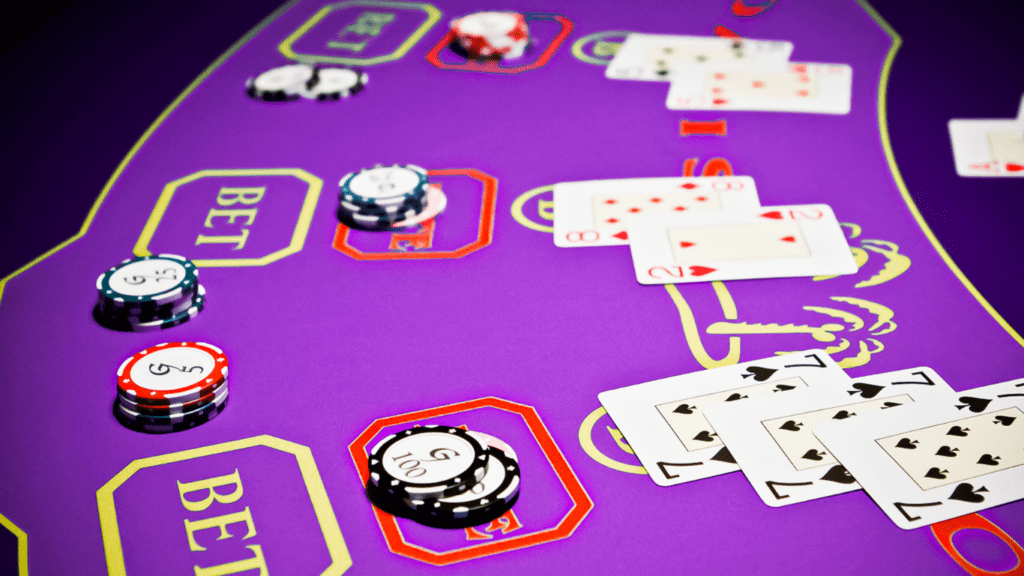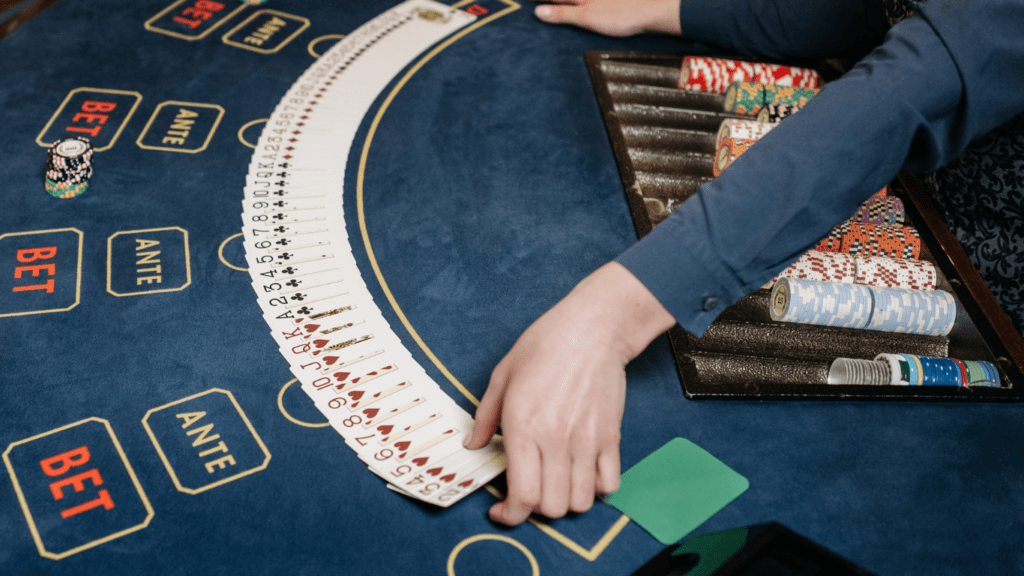Understanding Responsible Gambling
Responsible gambling forms the foundation of a safe and enjoyable experience. Knowing one’s limits, such as setting a budget and time constraints, enhances enjoyment and reduces potential risks. Equally important is staying informed about the odds and being realistic about winning chances.
Self-awareness is key. Maintaining self-control involves recognizing when emotions dictate decisions. By regularly evaluating my gambling behavior, I ensure it’s driven by entertainment rather than distress or obligation.
Taking regular breaks is essential to maintaining focus and enjoyment. Short pauses prevent fatigue and help manage the emotions that might arise during play. Remembering that gambling is entertainment compels me to view any money spent as a payment for this leisure activity.
Seeking support when needed is a crucial aspect of responsible gambling. Accessing resources like support groups or counseling services offers perspectives that reinforce safe habits. Ensuring I gamble responsibly protects not just my finances but also my well-being and relationships.
Setting Personal Limits
Setting personal limits plays a crucial role in keeping gambling enjoyable and safe. By establishing clear boundaries, I can better manage my time and finances.
Time Management
- Knowing how to manage my time helps me maintain a healthy balance between gambling and other activities.
- I designate specific periods for gambling to ensure it doesn’t interfere with my daily responsibilities.
- After each session, I review the duration to adjust future plans, preventing excessive gambling.
- Developing a routine that includes regular breaks keeps me focused and less prone to fatigue.
Financial Boundaries
- Setting financial boundaries protects my budget and prevents financial strain.
- I decide on a fixed amount I’m comfortable losing before starting any gambling activity.
- Sticking to this budget helps me view gambling as entertainment rather than a financial investment.
- I avoid the temptation to chase losses by reminding myself of my pre-set budget limits.
- By separating gambling funds from essential finances, such as rent or bills, I safeguard my financial security.
Recognizing the Risks
Gambling can quickly shift from fun to problematic if risks aren’t acknowledged. Understanding these risks helps maintain control and ensure enjoyable experiences.
Identifying Problematic Patterns
Certain behaviors indicate gambling may become an issue. Frequent gambling sessions, especially when they start interfering with daily obligations, signal concern. Emotional gambling, where mood dictates participation rather than enjoyment, suggests deeper issues. Borrowing money to gamble or hiding gambling activities from friends and family further exemplifies problematic patterns. Tracking these signs early aids in maintaining healthy habits.
Knowing When to Stop
Determining a stopping point is crucial for safe gambling. Set specific winnings or losses limits ahead of time. If these boundaries are crossed, it’s essential to step away. Monitor emotional states—if gambling feels like a necessity rather than entertainment, reevaluate participation. Breaks during gambling sessions refresh decision-making and maintain enjoyment. Recognizing the moment to pause preserves both financial and mental well-being.
Choosing Safe Gambling Platforms

Navigating the digital gambling world requires careful selection of platforms to ensure security and fairness. Here are key elements to consider when choosing a safe gambling site.
Licensing and Regulation
Licensed platforms offer a layer of protection for gamblers. I always check for licenses from reputable authorities like the UK Gambling Commission or the Malta Gaming Authority before signing up. These organizations enforce standards for:
- fairnes
- transparency
- player protection
The presence of such a license indicates the platform adheres to regulated practices and safeguards my rights as a player.
Security Features
A secure gaming environment is non-negotiable. I look for platforms that use SSL encryption to protect my data and financial transactions. Two-factor authentication (2FA) enhances account security by requiring verification before access. Noting these security features helps me ensure my personal and financial information remains safe while gambling online.
Maintaining a Balanced Lifestyle
Keeping a balance between gambling and other life aspects helps sustain the fun while reducing potential risks. By integrating diverse activities and fostering meaningful social connections, I can ensure a well-rounded and secure gaming experience.
Diversifying Entertainment Activities
Engaging in varied entertainment options enriches my lifestyle and reduces gambling dependency. I mix gambling with activities like sports, music, and travel to keep my interests broad. This diversification provides fresh perspectives and balances the excitement of gambling with other fulfilling experiences. For example, attending a live concert or exploring a new city offers enjoyment and helps limit gambling time.
Healthy Social Interaction
Social connections contribute immensely to maintaining balance and well-being. I make it a point to engage in activities that encourage positive social interactions, such as joining clubs or attending gatherings with friends. Participating in group sports or community events fosters relationships that support me beyond gambling. Additionally, sharing my experiences and concerns with trusted friends or family adds a safety net, ensuring that gambling remains a part of my varied life experiences rather than the focal point.
Seeking Help and Support
Recognizing when assistance is needed is vital. Gambling can be exhilarating but may lead to stress or addiction without moderation. If the fun starts fading and distress increases, it’s time to explore help options. Organizations like Gamblers Anonymous provide essential support and guidance. They offer group meetings where individuals can share experiences and receive peer support, fostering a sense of community and accountability.
Professional counseling can also be beneficial. Therapists specializing in gambling issues help identify underlying causes and implement strategies for healthier habits. Cognitive-behavioral therapy, for instance, can assist in reshaping thought patterns that contribute to compulsive gambling tendencies.
Hotlines offer immediate support. Services like the National Problem Gambling Helpline provide confidential assistance, connecting callers with resources tailored to their needs. This quick access to help can be crucial for those feeling overwhelmed.
Family and friends play a supportive role too. Engaging loved ones in discussions about gambling habits builds a strong support network, creating an environment where individuals feel comfortable seeking help before problems escalate. Open communication eases the process of addressing any negative impacts on relationships caused by gambling.
Educational resources are valuable. Many platforms offer materials on responsible gambling, enabling individuals to better understand their behaviors and make informed choices. Being informed enhances the ability to recognize problem signs early and take preventive measures.
By using these support systems, the thrill of gambling remains while risks are managed. This balanced approach ensures gaming continues to be an enjoyable pastime without compromising well-being or relationships.



 Cher Peters – Senior Gambling Strategist & Responsible Gaming Advocate
Cher Peters plays a pivotal role as the Senior Gambling Strategist, combining her extensive knowledge of gaming tactics with a commitment to responsible gambling. She specializes in crafting comprehensive guides and strategic tips designed to help players make informed, enjoyable gaming choices. Cher’s content spans from beginner-friendly tutorials to advanced playing techniques, helping players maximize their potential for success while remaining mindful of responsible gaming principles. Her expertise is particularly valued by players seeking to balance excitement with safety, making her an essential voice on Casino Champs Fortune.
Cher Peters – Senior Gambling Strategist & Responsible Gaming Advocate
Cher Peters plays a pivotal role as the Senior Gambling Strategist, combining her extensive knowledge of gaming tactics with a commitment to responsible gambling. She specializes in crafting comprehensive guides and strategic tips designed to help players make informed, enjoyable gaming choices. Cher’s content spans from beginner-friendly tutorials to advanced playing techniques, helping players maximize their potential for success while remaining mindful of responsible gaming principles. Her expertise is particularly valued by players seeking to balance excitement with safety, making her an essential voice on Casino Champs Fortune.
